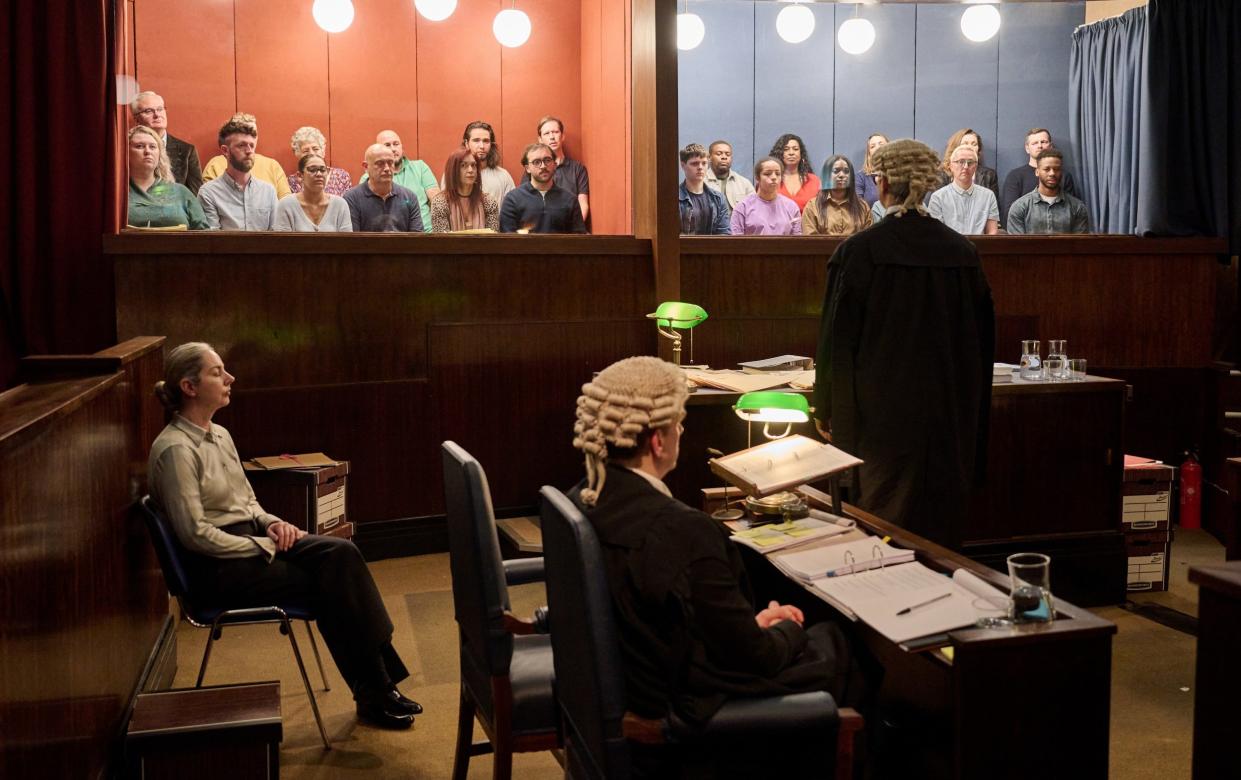The Jury: Murder Trial will make you lose all faith in the British justice system

What goes on in a jury room? Perhaps, if you’ve never done jury service, you imagine it to be a rigorous process in which 12 people take account of nothing but the facts. The Jury: Murder Trial (Channel 4) will quickly disabuse you of that notion.
Honestly, it’s fascinating. This is how juries actually reach their decision: by bringing their prejudices and life experiences to the courtroom, judging the defendant according to their personal set of rules, and often letting their heart rule their head. Judges and barristers will watch the whole thing through their fingers.
The four-part series re-enacts a real-life murder case using actors, with only the names changed (although it’s not difficult to look up the actual case using the details given in the programme). The defendant, a sculptor here known as “John”, admits that he killed his wife with a hammer. The prosecution say this was murder; the defence argue that the killing was manslaughter due to loss of control.
There are two juries, each unaware of the other’s existence, so we can see if they reach the same verdict. It’s unclear how Channel 4 chose the 24 people involved, and if their particular back stories formed part of the selection process. One man reveals, in a later episode, that he could understand the dynamic between the defendant and victim because his own wife was once so mad with him during a row that she got in the car and ran him over.
In my days as an Old Bailey reporter, I remember a prosecutor telling me that he paid attention to the voices of the jurors as they were sworn in. If he heard a well-spoken, middle-class voice he would silently give thanks: those people, in his view, were more likely to judge the case dispassionately and less likely to be taken in by crocodile tears.
Is that belief borne out here? Not necessarily. But it is eye-opening to see how many of the jurors form opinions on the defendant’s guilt immediately. Some can only view the case through the prism of their own experience, sympathising with one side or the other because they’ve been in similarly toxic relationships or believe this to have been a tragic love story. One woman spends the entire case in tears. Another cannot grasp the concept that the defendant might not be telling the truth. Plenty of judgment, too, of the victim in this case. “She didn’t deserve to die,” someone says, “but she was asking for it.”
With people convinced that they are amazing judges of character and deliberations dominated by the strongest personalities, it reminded me of The Traitors. The unknowable element, of course, is whether they would have behaved like this in a real court of law rather than the confines of a television experiment. Nevertheless, it’s a riveting study of group dynamics which may make you feel a little less confident in the workings of the British justice system.

